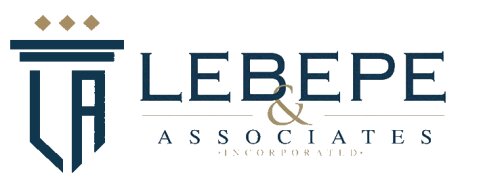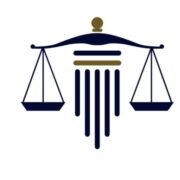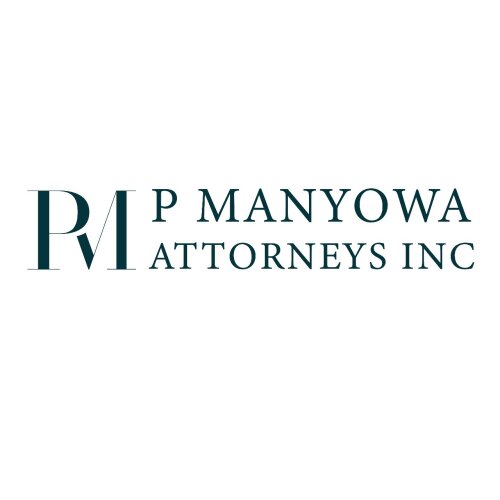Best Corporate Governance Lawyers in Polokwane
Share your needs with us, get contacted by law firms.
Free. Takes 2 min.
List of the best lawyers in Polokwane, South Africa
South Africa Corporate Governance Legal Articles
Browse our 2 legal articles about Corporate Governance in South Africa written by expert lawyers.
- South Africa POPIA Compliance Checklist for Global Firms
- International firms must comply with POPIA if they process personal information within South Africa or use automated or non-automated means situated in the country. Compliance is built upon eight specific conditions, ranging from accountability to data subject participation. Every organization must appoint and register an Information Officer with the South... Read more →
- Resolving Shareholder Deadlocks in South African Companies
- Shareholders in South African private companies can proactively prevent deadlocks by including customized tie-breaker provisions in their Memorandum of Incorporation (MOI). The "Shotgun Clause" is a high-stakes exit mechanism that forces one party to buy out the other at a set price, ensuring a clean break when management is paralyzed.... Read more →
About Corporate Governance Law in Polokwane, South Africa
Corporate governance refers to the system of rules, practices and processes by which companies are directed and controlled. In Polokwane, South Africa, these frameworks are shaped by national legislation and best-practice guidelines to ensure the accountability, fairness, and transparency of a company's relationship with its stakeholders. Good corporate governance is particularly important in Polokwane, an economic hub in Limpopo, where businesses must uphold high standards to attract investment and operate successfully within the local and global market.
Why You May Need a Lawyer
Securing the guidance of a lawyer skilled in corporate governance can be crucial in several situations. Whether you are establishing a new business, need to develop or update governance policies, or want to ensure your company's compliance with complex legal requirements, legal expertise can help you navigate these challenges. Common reasons for seeking legal help in this field include:
- Setting up a company's board of directors and defining their roles
- Understanding and implementing the Companies Act, 2008, and other relevant legislation
- Drafting and updating memorandum of incorporation, shareholder agreements, and internal governance charters
- Ensuring compliance with regulatory requirements, such as the King IV Report on Corporate Governance
- Managing disputes between shareholders or board members
- Conducting due diligence during mergers, acquisitions, or restructuring
- Responding to investigations or enforcement actions from regulators
Local Laws Overview
Corporate governance in Polokwane is governed by South African national law, particularly the Companies Act, 2008, which sets out the legal framework for corporate conduct, management duties, and shareholders' rights. The King IV Report provides key recommendations, focusing on leadership, risk governance, ethical corporate behavior, and stakeholder relationships. While these rules apply nationally, companies operating in Polokwane should also be aware of any local by-laws or provincial regulations that can impact their sector or operational requirements.
Other important aspects include the role of the Companies and Intellectual Property Commission (CIPC), which oversees company registrations, filings, and certain compliance matters. Public companies in particular are also subject to oversight from the Johannesburg Stock Exchange (JSE) if listed, and sector-specific regulators where relevant.
Frequently Asked Questions
What is corporate governance?
Corporate governance refers to the system of mechanisms and processes by which companies are directed, managed, and held accountable to their stakeholders, including shareholders, employees, customers, and regulators.
What are the main laws governing corporate governance in Polokwane?
The key pieces of legislation are the Companies Act, 2008, and the principles outlined in the King IV Report on Corporate Governance. Both apply across South Africa, including Polokwane.
Who is responsible for corporate governance in a company?
The board of directors holds primary responsibility for developing and upholding corporate governance structures and ensuring that management acts in the best interests of the company.
What are the major corporate governance challenges faced by businesses in Polokwane?
Common challenges include lack of board diversity, understanding evolving duties under the Companies Act, managing shareholder disputes, and complying with changing regulatory expectations.
Is it mandatory for companies in Polokwane to comply with the King IV Report?
The King IV Report operates on an apply-and-explain basis. It is not legally binding, but companies-especially public companies-are expected to apply its principles and explain any deviations in their annual reports.
Can a company be penalized for poor corporate governance?
Yes, non-compliance with legal requirements can result in regulatory sanctions, fines, or even deregistration. Directors may also face personal liability for breaches of their duties.
How often should corporate governance policies be reviewed?
It is good practice for companies to review their governance policies annually or whenever there are significant legal or business developments.
What is the role of the Companies and Intellectual Property Commission (CIPC)?
The CIPC is responsible for registering companies, enforcing certain governance and disclosure requirements, and overseeing compliance with company law in South Africa.
How can shareholders hold directors accountable?
Shareholders have the right to access certain company information, attend annual general meetings, vote on key decisions, and bring resolutions or legal actions if directors breach their duties.
Do small businesses in Polokwane need to worry about corporate governance?
Yes, all companies-regardless of size-benefit from good governance practices. Clear structures help prevent conflicts, improve decision-making, and demonstrate credibility to investors and partners.
Additional Resources
If you need more information or assistance with corporate governance in Polokwane, consider reaching out to these resources:
- Companies and Intellectual Property Commission (CIPC)
- South African Institute of Chartered Accountants (SAICA)
- Institute of Directors in South Africa (IoDSA)
- Department of Trade, Industry and Competition (DTIC)
- Limpopo Economic Development, Environment and Tourism (LEDET)
- Local business chambers and industry associations in Polokwane
- Legal Aid South Africa for guidance on accessing affordable legal services
Next Steps
If you need legal assistance with corporate governance in Polokwane, begin by identifying your specific issues and gathering all relevant company documents. You should then consult with a qualified corporate lawyer who is familiar with both national legislation and local regulations in Polokwane. Prepare a list of questions and concerns to discuss, and ensure that you understand your legal obligations and options available. Remember, timely legal advice can help you implement strong governance structures, avoid disputes, and ensure long-term compliance and business success.
Lawzana helps you find the best lawyers and law firms in Polokwane through a curated and pre-screened list of qualified legal professionals. Our platform offers rankings and detailed profiles of attorneys and law firms, allowing you to compare based on practice areas, including Corporate Governance, experience, and client feedback.
Each profile includes a description of the firm's areas of practice, client reviews, team members and partners, year of establishment, spoken languages, office locations, contact information, social media presence, and any published articles or resources. Most firms on our platform speak English and are experienced in both local and international legal matters.
Get a quote from top-rated law firms in Polokwane, South Africa — quickly, securely, and without unnecessary hassle.
Disclaimer:
The information provided on this page is for general informational purposes only and does not constitute legal advice. While we strive to ensure the accuracy and relevance of the content, legal information may change over time, and interpretations of the law can vary. You should always consult with a qualified legal professional for advice specific to your situation.
We disclaim all liability for actions taken or not taken based on the content of this page. If you believe any information is incorrect or outdated, please contact us, and we will review and update it where appropriate.














